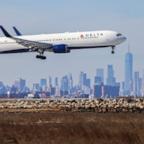Radiation Risks Diminish With Distance
June 4 -- Amid fears of a nuclear conflict between India and Pakistan, experts estimate hundreds of thousands of people would be killed instantly in a nuclear attack on a city in either country, but it may be the spread of radiation that poses the biggest danger.
While there isn't enough known about the size and strength of the present nuclear arsenal maintained by India or Pakistan to make accurate estimates, studies of the attacks on Hiroshima and Nagasaki in Japan during the World War II and the meltdown of Chernobyl's reactor in the 1980s have provided researchers with information suggesting what may happen to victims and how far the radiation will reach.
Distance is a crucial factor, and for those living as far away as the United States negative health effects of fallout from these past events have not been noted.
"We didn't see any remote effects on populations from the Hiroshima or Nagasaki detonations [and while] the Chernobyl incident reached through much of Europe, there aren't any recorded consequences in terms of health effects that are outside of the immediate areas," says Dr. A. Bertrand Brill, research professor of radiology and radiological sciences and research professor of physics at Vanderbilt University School of Medicine in Nashville, Tenn.
"If there are substantial amounts of radioactive material that are injected into the atmosphere, we likely will be able to measure that in the United States," says Kenneth Mossman, professor of health physics and director in the Office of Radiation Safety at Arizona State University in Tempe. "Will it have a significant health impact in the United States? Not likely. However, individuals who live in the region where the detonations could occur will have substantial health impacts."
Risk Spreads Out From Ground Zero
How far the effects of a nuclear detonation will reach depends upon many factors, such as the weather and whether the bomb was detonated above the ground or at ground level. A bomb that explodes at ground level creates much more fallout, which can carry radiation up to several hundred miles.




